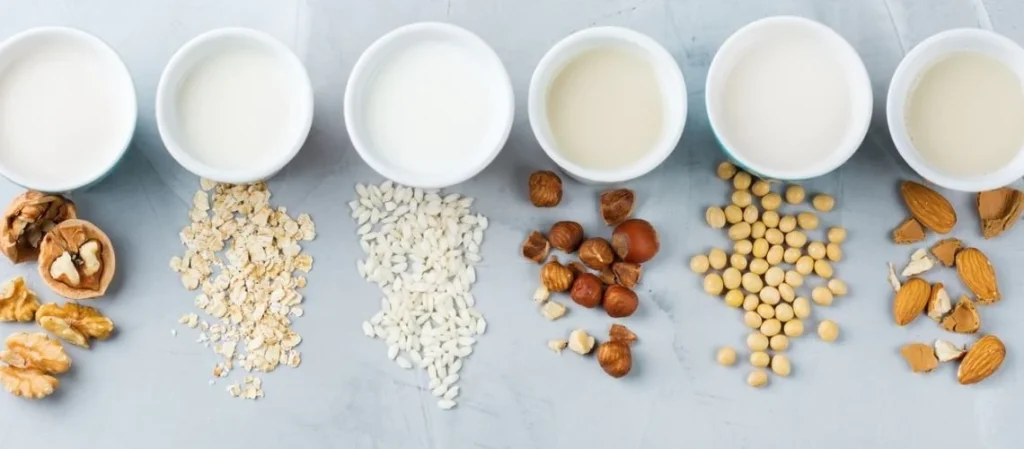There are countless myths when it comes to oral care, and the purported benefits of dairy products has been the centre of many. Some have suggested that one should eat cheese before bed if they can’t brush their teeth, while others think that cow’s milk is a perfect substitute for mouthwash. This begs an age-old question, will milk make your teeth whiter?
The straightfoward answer is NO, milk will not make our teeth whiter. While milk is rich in various nutrients (e.g., calcium and phosphorus) that can help to keep our teeth healthy, there is negligible effect when it comes to the removal of stains on our teeth.
This meant that if your teeth are stained due to food, smoking, or other external factors, milk will not lighten or remove these stains. For effective teeth whitening, opt for professional teeth whitening treatment or over-the-counter teeth whitening kits such as Opalescence Boost Teeth Whitening Kit or Crest 3D Teeth Whitening Strips.
In the rest of this article, we will elaborate more on the components of animal milk and delve into the scientific truths behind milk’s relationship with dental health!
What is in Animal Milk?
Animal milk is rich in various nutrients and other component. The exact composition can vary depending on whether it is cow’s milk, goat’s milk, or sheep milk, as well as the diet and other environmental factor. In general, animal milk contains the following:
- Proteins: Casein and whey proteins are the two main types found in milk.
- Fats: Saturated and unsaturated fatty acids are present, along with cholesterol in varying amounts depending on the animal source.
- Carbohydrates: Lactose is the primary carbohydrate found in most animal milks.
- Calcium: One of the most abundant minerals in milk, essential for bone health.
- Phosphorus: Works in conjunction with calcium and is important for bone structure.
- Vitamin D: Often fortified in commercial milk products, this vitamin helps in calcium absorption.
- Vitamin A: Important for vision and the immune system.
- Vitamin B12: Essential for red blood cell formation and neurological function.
- Riboflavin (Vitamin B2): Important for energy metabolism.
- Water: The majority of milk is water, which serves as a solvent for the other components.
- Enzymes: Various enzymes like lactase, lipase, and others may be present in raw milk.
- Hormones: Hormones like insulin, and sometimes added hormones like rBST in the case of some commercial cow’s milk, may be present.
- Immunoglobulins: These are antibodies that provide immune protection.
- Electrolytes: Sodium, potassium, and other electrolytes are present in trace amounts.
- Antioxidants: Certain vitamins like Vitamin E and other compounds act as antioxidants.
As mentioned above, milk produced by different animal species may have different concentration of nutrients and protein structure. Also, raw and processed (e.g., pasteurized, homogenized) milk have different flavor and nutritional profiles due to the processing methods.
Can Lactic Acid Whiten Your Teeth?
You may have come across articles that posits the ability of lactic acid, to strengthen and whiten the teeth.
This claim is false as most, if not all, milk do not contain lactic acid. The acid is only when milk is fermented or soured through a process which relies on bacteria to convert lactose into lactic acid. Hence, lactic acid can only be found in certain dairy products such as yoghurt and some types of cheese
While the acidity of lactic acid can help to bleach the teeth and remove stain, it also decreases the pH level in the mouth. This leads to a process known as demineralization. When this happens, hydroxyapatite, the main mineral in enamel, is eroded away.
This causes the teeth to become thin and yellowish in color as the dentin is gradually exposed through the enamel.
How Can Milk Help Your Teeth?
Now, some of you may wonder, if milk can’t remove stain, can it resist the formation of stain?
In a 2014 research study published on International Journal of Dental Hygiene, it was revealed that milk significantly reduces the ability of tea to stain teeth. The study was done by immersing human teeth in a tea solution for 24 hours and comparing it to a second solution which contains both tea and milk. It was concluded that caesin reduced the formation of stains in magnitude similar to what was achieved from bleaching treatments.
Caesin is a protein that makes up 80% of the cow’s milk protein, the remaining 20% being whey. The “magical” protein work by binding to polyphenols (also known as tannins) found in tea; Tannins are one of the main contributors of teeth stains as they interact with chromogens — a substance that becomes colored when oxidized — and stick to the enamel.
You may be interested in: How To Prevent Decalcification of Teeth?
Apart from reducing the ability stain-causing compounds to stain our teeth, casein also protects the teeth by forming a protective coating on the enamel, preventing stain-causing drinks such as coffee and soft drinks from sticking onto the surface.
Nonetheless, several dentists have disputed the results of the study, claiming that the “stain reduction” effect was due to the dilution of the tea which reduced its concentration and made it lighter in color.
Is Plant-Based Milk the Same?
In recent years, plant-based milks like almond milk, oat milk, soy milk, and rice milk have gained popularity as dairy-free alternatives. However, just like animal-based milk, plant-based milks do not have any teeth-whitening properties. This is because the milk lack the bleaching agents needed to remove teeth stains.

Plant-based milk have a neutral to slight-acidic pH, meaning that while they are not acidic enough to erode the enamel, they are also not capable of removing stains on the surface of the tooth.
That said, many plant-based milks are fortified with calcium and vitamin D, these nutrients are beneficial for strengthening teeth and promoting overall dental health rather than whitening teeth.
What Food Can Whiten Your Teeth?
While there are no natural treatment that can compare to the efficacy of a professional teeth whitening treatment, there are several food that can help improve the appearance of your teeth by reducing stains or strengthening your enamel. Here are some of the top recommended food that can whiten your teeth:
- Pineapples: This exotic fruit contains an enzyme called bromelain, which acts as a natural stain remover. Bromelain also helps break up plaque, the sticky film of bacteria that accumulates on your teeth, reducing the chances of decay.
- Strawberries: This delicious fruit contains malic acid, an acid that is known for its bleaching properties. However, this acid can also soften the enamel, so it’s important not to go overboard and to rinse your mouth out with water after eating them.
- Watermelon: Watermelon also contains malic acid, which helps to lighten the stain and promote salivation.
- Papaya:The stain-reducing element in this exotic fruit is papain. It is known to be able to break down proteins and is commonly used in meat tenderizers. As such, it has been suggested to be an effective enzyme in breaking down the protein layer that causes stain formation on the teeth.
While all these food can help to reduce the stains on your teeth, it is unclear and how effective it is. If you are constantly consuming stain-causing food and drinks like coffee, the aforementioned food will do little to whiten your teeth. Adding on, they are not a replacement for good oral hygiene and regular check-ups with your dentist.
If you’re looking to make your teeth really shine, look beyond the milk carton. Consider teeth whitening treatments such as Opalescence Boost Teeth Whitening or in-clinic teeth whitening treatments. However, nothing can replace good oral hygiene practices, so make sure you keep up the regular habit of brushing your teeth, flossing, and using a mouthwash!







